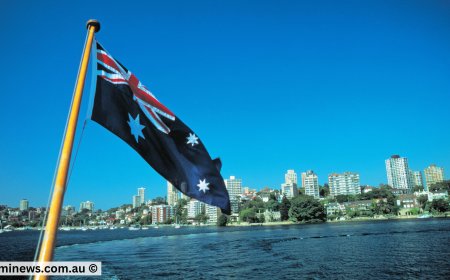Australia's Migration Cut Plans Raise Concerns Among Businesses | Australia Immigration Updates
Employers are expressing significant concern over the Coalition's proposed cuts to migration numbers, following the opposition leader's commitment to deeper reductions than those planned by the current government. These concerns highlight the ongoing political debate about population growth and housing supply after the federal government announced a plan to cut net overseas migration from 528,000 last year to 260,000 next year. The opposition leader has vowed to further reduce this number to 160,000.

The Chief of the Australian Chamber of Commerce and Industry, expressed alarm over the Coalition's target, warning that achieving these numbers could severely impact the economy due to the ongoing need for skilled workers and international students.
He expressed that the proposed numbers are causing significant concern for businesses, as achieving them seems mathematically improbable. This reduction would have a substantial impact on various sectors already facing severe skill shortages, such as engineering, nursing, teaching, and hospitality.
The CEO of the Business Council of Australia echoed these concerns, suggesting that the focus should instead be on increasing housing supply through federal and state collaboration. "Reducing temporary skilled migration could have a negative impact on the economy and exacerbate existing skill shortages," he said.
Similarly, the CEO of the Australian Industry Group argued that the migration program should prioritize skilled migrants who contribute to economic growth. "Cutting the skilled component of the migration program would be a momentous act of economic self-harm," he warned. "If the government wants to reduce migration, it should look beyond the skilled pathway."
The President of the National Farmers’ Federation also voiced concerns, noting that agriculture is a top industry for skilled workers and that cuts to migration would undermine the sector. He suggested that the government could address the housing crisis by offering tax incentives to farmers to provide more housing.
Despite these warnings, the opposition leader defended his policy, accusing the government of supporting a "big Australia" approach to migration. "I celebrate our great migration story, but it needs to be managed properly," he said.
The business community's concerns have intensified since the opposition leader's recent radio interview, where he detailed plans to reduce net overseas migration to 160,000 annually, significantly lower than the government's forecast. His comments went beyond his earlier budget reply speech, where he proposed cutting permanent migration to 140,000, down from the projected 185,000.
A demography professor at the University of Melbourne cautioned that targeting a specific net migration intake would be challenging and that significant cuts to international students would disrupt universities and future skilled worker recruitment. "International students are a major source of new skilled workers," he said.
Last financial year, net overseas migration was 528,000, comprising 265,000 overseas students, 71,000 working holidaymakers, 12,740 permanent humanitarian places, 25,000 New Zealanders, 44,000 temporary skilled workers, and 30,000 permanent skilled workers.
A former Deputy Secretary of the Department of Immigration noted the difficulty in achieving the proposed cuts without detailed plans beyond capping student numbers, which would lead to fewer skilled workers in crucial sectors like healthcare.
The Chamber of Commerce chief emphasized the importance of student intake, noting that education is a significant export industry valued at $48 billion annually. "Capping an export industry like international education is not practical," he said. International students have a relatively muted impact on housing affordability issues.
What's Your Reaction?
 Like
0
Like
0
 Dislike
0
Dislike
0
 Love
0
Love
0
 Funny
0
Funny
0
 Angry
0
Angry
0
 Sad
0
Sad
0
 Wow
0
Wow
0







































































































